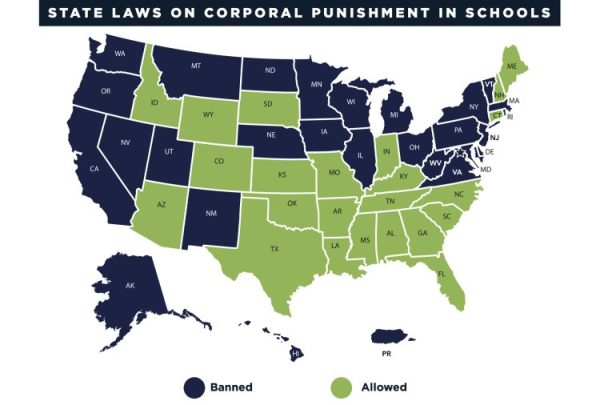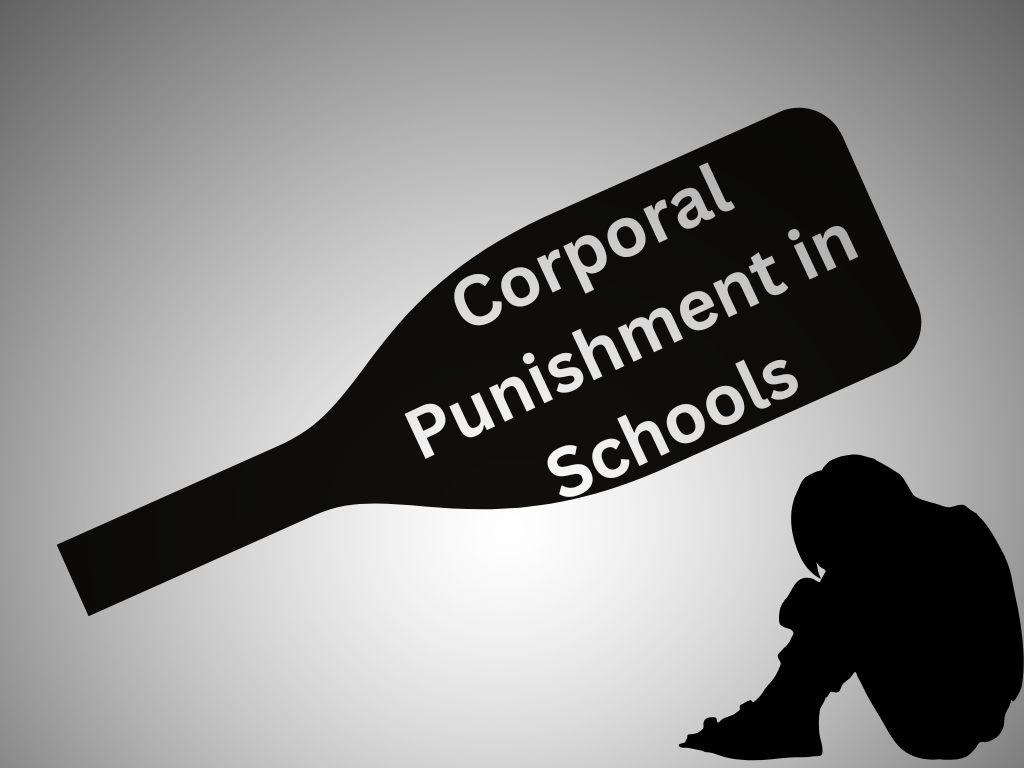Corporal punishment in schools: the hitting, spanking, or paddling of a child in attempt to fix their disruptive, bad behavior. Lying, whispering, passing notes- all misdemeanors that should be met with punishment. A slap on the knuckles- with a ruler- for every note passed. A public paddling in front of the class- one swat for every late or missing assignment. These punishments seem fair, right?
As of 2024, according to nea.org, corporal punishment is still legal in 17 states- and practiced in 14. This includes school staff to use corporal punishment as a method of discipline from preschool to grade 12. Six more states have not explicitly said that the practice is banned or prohibited. In May of 2023, Senator Christopher Murphy introduced the Protecting our Students Act to ban the practice of corporal punishment in any school that receives federal funding. The bill was introduced on May 30th, 2023, but never even passed the Senate.

Corporal punishment can have lasting effects on students’ mental- or even physical- health. Hitting children to correct their behavior can affect their mental health and may lead to trauma. According to a study by UCL researchers, children who were hit at young ages are more likely to experience behavioral issues and mental health problems throughout their childhood.
On top of the trauma from being hit at school, it is also humiliating for the student if the punisher decides to hit the student in front of their peers or their higher-ups. The humiliation may lead to low self-esteem, fear, and anxiety that could stay with the student, even through adulthood.
While hitting students to enlist fear in them may seem like a good idea to some, the long-term effects should be considered first. Hitting or humiliating a child at school may cause them to fear school and adults, or even give them trust issues later in life. School should be a place where children can trust their teachers and feel like they are in a safe, comfortable learning environment, but that will not happen if children are being physically punished for their mistakes and behavior.
Teaching kids to fear school is not the same as teaching them to respect it, which is what most teachers are trying to do. Bullying students may affect their education in negative ways as well. By teaching them that school is a scary, mean place, children will avoid it as much as possible. This could include skipping classes for multiple days or weeks at a time, losing interest in work or classes, or giving them so much stress that they can’t focus or complete work. This is the opposite of the original intention to “fix” students.
Instead of physical punishment, there are other ways to discipline students in ways that will not cause physical harm or trauma to them. These may include positive discipline, which is disciplining children in a calm, helpful manner rather than a mean, physical manner.



Raymond C Sollars • Apr 5, 2025 at 10:27 pm
Corporal punishment belongs on the scrapheap of human history. Those who still advocate it show their psychological bankruptcy whether they admit it or not. Incredible how States still allow it. Let’s call it what it is, legalized assault. Those who call it otherwise are liars.Ray